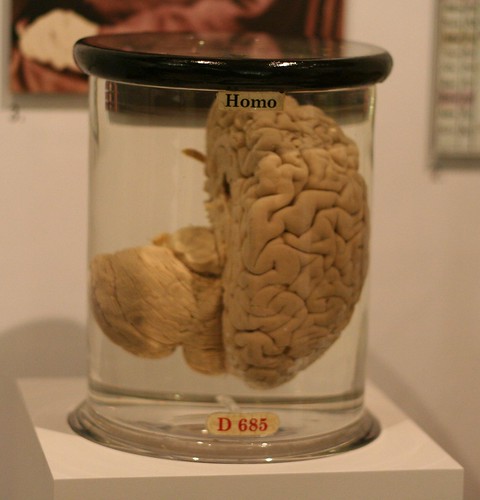
A few days ago, sitting alone in a room, I asked my powerful computer “If FREE WILL exists, where does it come from?”
To my surprise, soon many answers began popping up on my screen, each window containing a separate response and thread of justification. I suppose that’s what happens when you type the question into your IM away message and you have chatty friends. While the responses themselves varied widely, the interesting aspect is that everyone seems to have their own slightly different definition of free will, which is obviously a hindrance to any existential discussion. The best definition of free will is one I heard from my co-founder Leith. He defines free will as:
“the ability to make a choice such that that choice is not computable by a third party given the same inputs”
Now, that is a good definition because it is a statement that is both testable and fits within the popular notion of free will. Namely, the definition implies that if you have free will, then you have the ability to make choices that are not predictable by a third party. But, what kind of third parties?
The Case of Superbrains
Let’s say that not everything that we might want to apply the label of “having free will” to has the same computational capability. In other words, you have a brain, but there may exist entities out there that have brains with more computational capability or less computational capability. By computational capability, I mean that in the sense of computability, not speed. So while Johnny Boy may be faster at doing long division than you, he doesn’t have any additional computational CAPABLITY, because you could learn how to do and master long division yourself as well. On the other hand, you have more computational capacity than someone suffering from anterograde amnesia. Let’s call someone with more computational capability than yourself a Superbrain. God is a Superbrain. In fact, God is a Superbrain that knows everything. We can clearly see that if a Superbrain exists, then they could compute your choice given the same inputs. Thus you have no free will.
The Case of Equal Brains
Let’s say that either Superbrains don’t exist or they don’t really concern you because you don’t usually encounter Superbrains while walking to the bus stop. In that case, everyone has roughly the same hardware and hence the same computational capabilities. However, then our working definition of free will cannot hold, by the property of symmetry (or should I say asymmetry). That is, there cannot exist a choice that is computable by one party, but not by a third party, since everyone has the same computational capabilities. Practically speaking, what that means is, if I can choose the meatloaf sandwich, then another person with all the same data that my brain has, would go for the meatloaf sandwich as well. Hence, no free will in the case of equal brains either.
What we have shown is that either free will doesn’t exist or we have a bad definition of it.
Perhaps another definition of free will be more useful. I propose a definition of free will which defines it as a perception, and more specifically, as a feeling, in the same semantic class as terms like excitement, anxiety, or depression. A feeling, or emotion, is a pattern of electrical firings in the brain coupled with a certain biochemical signature. Thus, like with other emotions, on certain days I feel like I have more “free will” than other days and I have no "free will" when I am asleep. Under this definition, “free will” is the antonym of helplessness.
Why has the concept of free will been such a central topic of obsession over the ages? I think because the concept of free will is a “thinker trap”--our brains get stuck in it whenever we think about it. One theory I have is that the thing that makes catchy songs catchy is that all catchy songs have the property that the end of some segment in the song fits well with the beginning part of that segment, forming a loop. We can’t get the song out of our head because our brain keeps falling into that loop (if we don’t remember what the boring part of the song was) and so the song never finishes and our brain just ends up storing it that way.
Similarly, our minds get stuck on the concept of “free will” because it is a paradox in the same sense that “jumbo shrimp” is an oxymoron. The only difference is that that there are a few more deductive steps between the words “free” and “will” so it’s not as obvious to us.